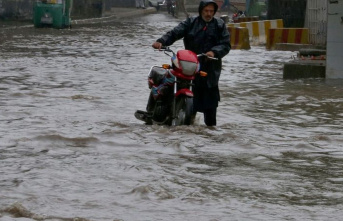In the collective bargaining dispute at Swiss Post, the Verdi union is keeping the pressure up. If the group doesn't move in the fourth round of negotiations and doesn't "submit a materially significantly improved offer, we'll go on strike next week," said Andreas Henze, the state department head of Verdi Baden-Württemberg, the German Press Agency. He is a member of the union's bargaining committee.
Today, Verdi and the Post want to return to the negotiating table, the fourth round of talks in Düsseldorf is likely to last until Saturday. Verdi is demanding a fee increase of 15 percent, which Swiss Post does not consider economically viable.
Strike: expensive thing for the post office
According to Verdi, in a ballot in the Post and Parcel Germany division, 85.9 percent of those surveyed opposed the company's tariff offer and declared their willingness to go on an indefinite strike. This had only happened once for the logistician in this millennium, namely in 2015 - at that time the consequences were massive, many consumers had to wait a long time for packages and letters that had been left behind.
It would probably be the same this time. The strike would be expensive for Swiss Post, as it would probably have to pay for external storage capacity. In 2015, she had estimated the strike costs at 100 million euros.
Tariff increase for 160,000 employees
After the result of the ballot was fixed on Thursday, the union could actually have called for a strike. For the time being, however, she refrained from doing so and instead complied with the employer's request to return to the negotiating table. Trade unionist Henze said: "It's up to the post office to move so that the collective bargaining conflict can be ended."
The Post has so far offered a tariff increase of an average of 11.5 percent from 2024 in two steps, and from this year there should also be 3,000 euros net as inflation compensation. The company wants the new collective agreement to run for two years. Verdi, on the other hand, is only planning a one-year term at 15 percent plus. The tariff increase would apply to around 160,000 employees, namely postmen, parcel carriers and other domestic employees.











